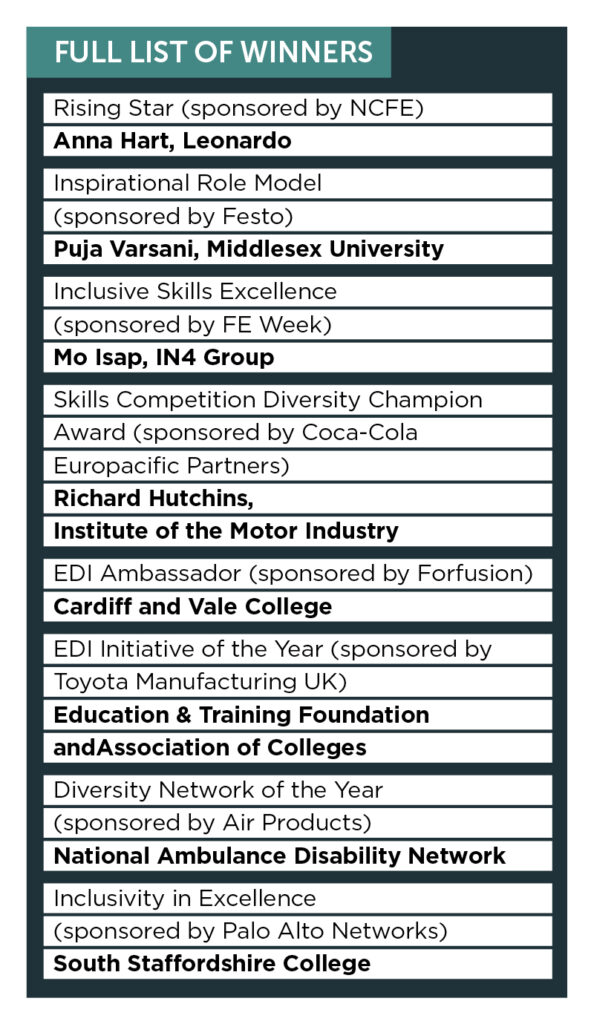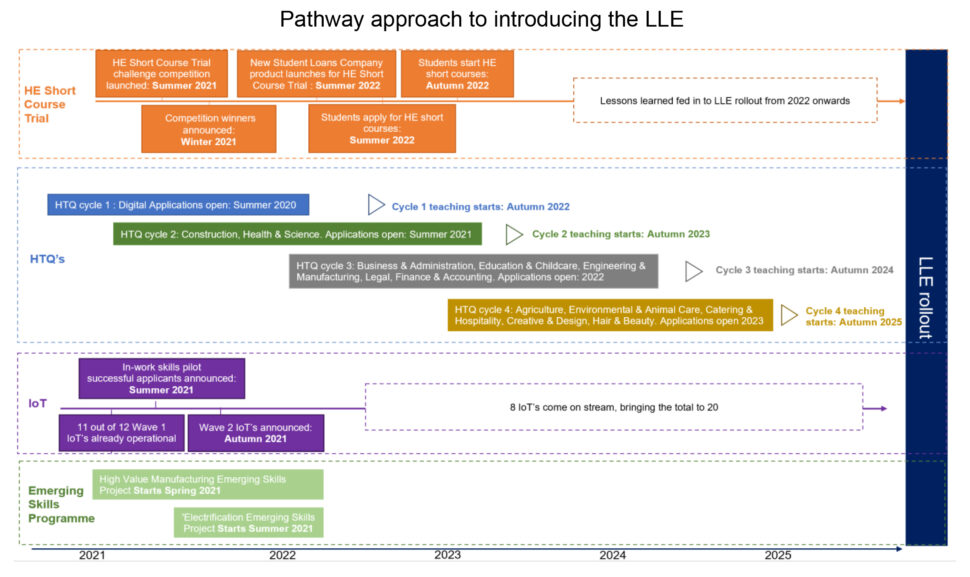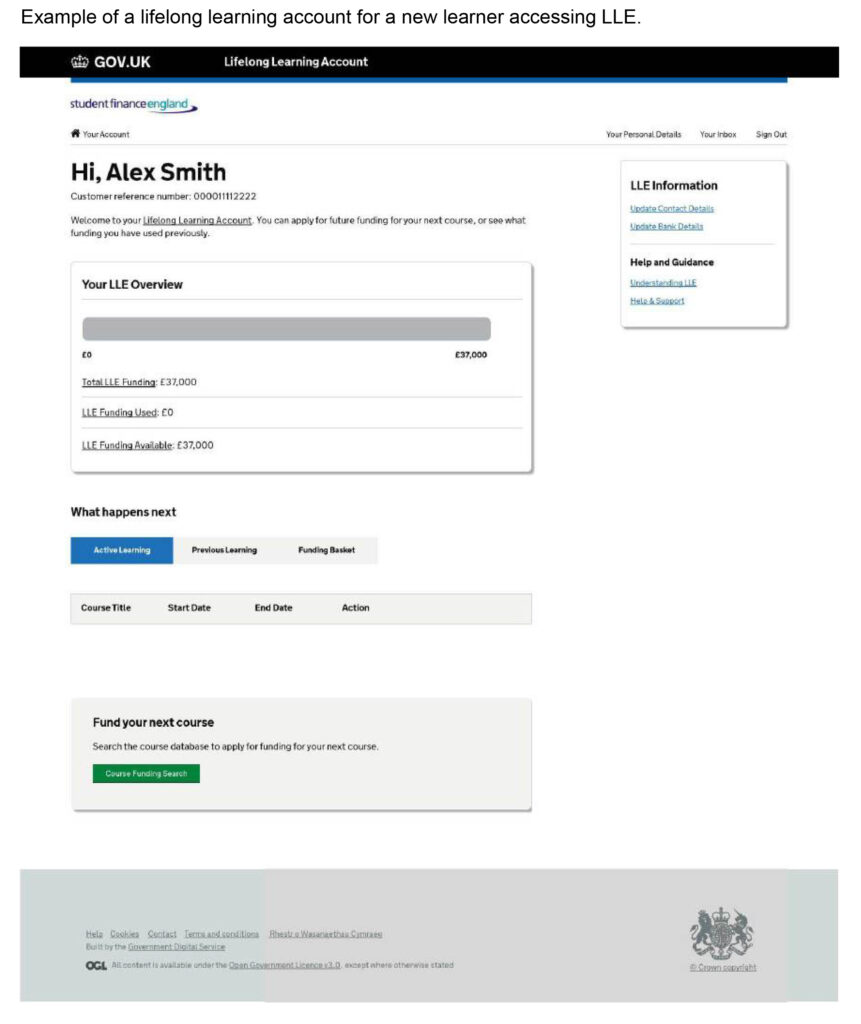Plans to deny student loans to learners who fail their English and maths GCSEs risk “removing the ladder” for disadvantaged students hoping to study higher education, ministers have been warned.
One legal expert has even said the proposals are “potentially discriminatory” because of the impact they could have on students with special educational needs and disabilities.
The Department for Education will launch a consultation tomorrow on new minimum eligibility thresholds to “ensure students aren’t being pushed into higher education before they are ready”.
It will ask for views on making access to student finance dependent on having either two Es at A-level or at least a grade 4 in English and maths GCSE.
But Geoff Barton, from the Association of School and College Leaders, said those “with the aspiration and commitment to access higher education should be helped to achieve that ambition”.
“To do the opposite smacks of a lack of ambition on the part of the government. It seems more like a case of removing the ladder up rather than levelling up.”
David Hughes, the chief executive of the Association of Colleges, said there are more than 150 colleges offering employment-focused higher education to adults who would not be able to access it elsewhere – adding that he is “very worried” the proposed minimum entry requirements “will hit them the hardest”.
“Adults often enter college HE without a suite of GCSEs or A-levels and go onto good outcomes, including good jobs and promotions; excluding them through a minimum entry requirement would be perverse,” he said.
In 2019, the last year formal exams took place, 44.7 per cent of disadvantaged students achieved at least a grade 4 in English and maths at GCSE, compared to 71.8 per cent of other pupils.
That same year, 26.7 per cent of pupils with SEND achieved the benchmark, compared to 71 per cent of those without.
Changes ‘potentially discriminatory’
Sarah Woosey, an education lawyer at Simpson Millar, said the proposed changes were “potentially discriminatory”, and pointed to the government’s need to comply with the public sector equality duty.
“Although it is probably sensible to ensure that students are only funded to study courses which they are able to succeed at, this decision should be determined by the entrance criteria for the individual universities, which also must comply with the Equality Act.
“To say that a university would be happy to offer a place to applicant on the basis of their admissions criteria but then for that student to be unable to access funding to do this because of their disability has got to be wrong.”
The Education Policy Institute warned that students from low-income families, black students and those from parts of the north and West Midlands could be most affected by the changes.
David Robinson, director of post-16 and skills, said the proposals “appear to be regressive and further thought must be given to ensuring that students from disadvantaged backgrounds are not adversely impacted”.
He said pupils who did not pass English and maths GCSEs already faced potentially limited options at level 3, making it harder for them to secure two Es at A-level.
“It is therefore important that the government considers whether contextual factors, such as student background or learning loss, should be taken into account when applying for student loans.”
Almost 19,000 students could be affected
Experts have predicted that thousands of pupils could be affected by the change.
Data from the University and College Admissions Service (UCAS) shows 91.6 per cent of 18-year-olds accepted onto university courses in 2020 met the grade 4 in English and maths requirement.
Mary Curnock-Cook, UCAS’s former chief executive, said a minimum GCSE requirement in 2020 would have meant around 18,800 students being excluded, and around £520 million of fee income lost by universities.
She said this would be a “pretty catastrophic reduction, unprecedented since the fee changes in 2012”.
The impact of the two Es at A-level requirement is less easy to work out. UCAS analysis shows 4,769 people fell below a D-E-E threshold in 2018, while 2,819 fell below three Es.
The consultation will be launched as part of the government’s response to the 2019 Augar review of post-18 education. The review did model a potential minimum entry threshold, but based on A-level achievement rather than GCSE.
The report found it was “feasible” to contextualise an entry threshold based on socio-economic background, which could “address the problems of low returns for graduates in a socially progressive way”.
Augar found threshold would be ‘significant intervention’
But it warned such a threshold would be a “significant intervention into what has been designed as a competitive autonomous market”.
It might also be objected “that the contextualisation process breaks the clear link between attainment and entry established by a minimum entry threshold”.
For example, two students at the same school with the same grades holding the same offer from the same university could have “different outcomes”.
“In so doing, it could be presented as an example of social engineering – and breach of concepts of fairness – that do not fit comfortably within a meritocratic education system.”
Poorer pupils ‘most likely’ to suffer
Bill Watkin, chief executive of the Sixth Form Colleges Association, warned plans for a threshold were a “blunt tool” driven by “financial considerations” which would “set back social mobility and hamper widening participation in higher education”.
But according to Times Higher Education, universities minister Michelle Donelan stressed today that minimum eligibility thresholds were “not a defined, definite direction of travel” for the government.
“It isn’t necessarily the case we will even be doing a minimum entry requirement, or going down that English and maths route. That is just one of the options.”
Donelan also claimed that just 4,800 students who went to university last year did not have grade 4 English and maths GCSEs.
A DfE spokesperson said the government needed to “ensure that we are creating opportunities that will not only open doors but will develop the talent our country needs to prosper now and in the future”.
“Higher education is an investment and we need to ensure that graduates are being rewarded for the money, time and effort they put into their studies with an educational experience and jobs that match their skills and help contribute to the economy”.




